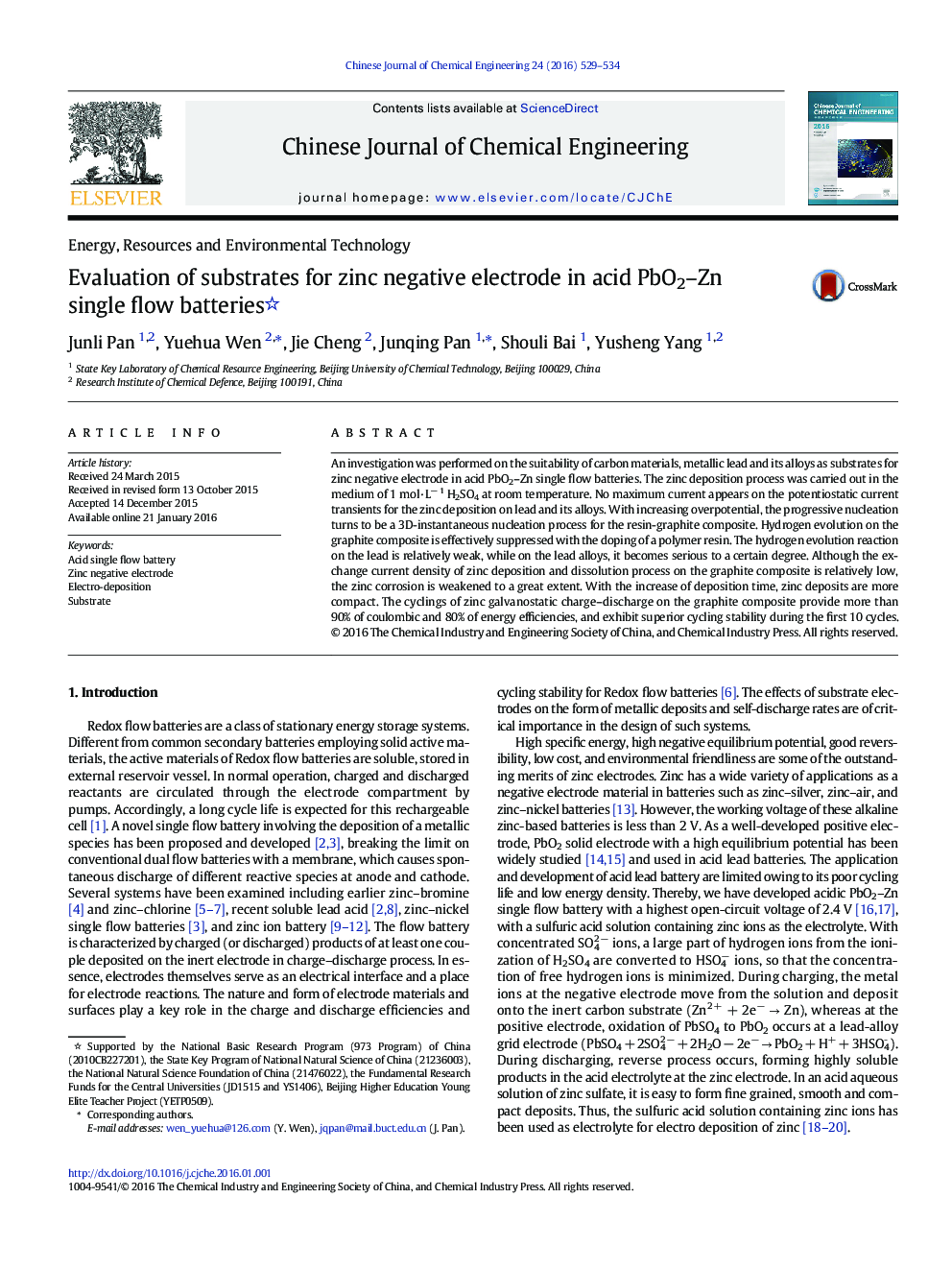| Article ID | Journal | Published Year | Pages | File Type |
|---|---|---|---|---|
| 166977 | Chinese Journal of Chemical Engineering | 2016 | 6 Pages |
An investigation was performed on the suitability of carbon materials, metallic lead and its alloys as substrates for zinc negative electrode in acid PbO2–Zn single flow batteries. The zinc deposition process was carried out in the medium of 1 mol·L− 1 H2SO4 at room temperature. No maximum current appears on the potentiostatic current transients for the zinc deposition on lead and its alloys. With increasing overpotential, the progressive nucleation turns to be a 3D-instantaneous nucleation process for the resin-graphite composite. Hydrogen evolution on the graphite composite is effectively suppressed with the doping of a polymer resin. The hydrogen evolution reaction on the lead is relatively weak, while on the lead alloys, it becomes serious to a certain degree. Although the exchange current density of zinc deposition and dissolution process on the graphite composite is relatively low, the zinc corrosion is weakened to a great extent. With the increase of deposition time, zinc deposits are more compact. The cyclings of zinc galvanostatic charge–discharge on the graphite composite provide more than 90% of coulombic and 80% of energy efficiencies, and exhibit superior cycling stability during the first 10 cycles.
Graphical AbstractFigure optionsDownload full-size imageDownload as PowerPoint slide
